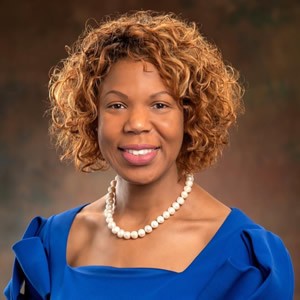Now Erica Gilmore is an elected official and an America Walks Board Member

By Erica Gilmore
I am proud and honored to be a board member for America Walks, a leading national nonprofit, that advances safe, equitable, accessible places and spaces to walk and move by giving people and communities the resources to effectively advocate for change. Personally, I can attest to the importance of the social and economic benefits of having walkable and accessible communities and spaces. Growing up in and around North Nashville (TN) as a young black girl, I witnessed the devastation that took place in the black neighborhoods on and adjacent to Jefferson Street after the interstate highway system was built over and through North Nashville. Although the interstate planners did not intentionally seek to destroy the black community, the planners’ lack of intentionality of concern for black neighborhoods nevertheless had devastating effects on African Americans by dissecting and isolating black neighbors from each other. These dissections severed black neighborhoods economically and socially.
Historically, North Nashville, in particular Jefferson Street and its adjacent black communities, were prosperous, thriving, and interconnected up until the 1960s. The area had a strong sense of community and interdependence. There were many prominent black-owned businesses and vibrant commercial and social activity was ubiquitous in the community. However, when the interstate highway system came to Nashville, the developers of the project constructed multiple highways to converge in and around Jefferson Street which dissected and isolated black neighborhood after black neighborhood which neighbors had previously thrived as one. Black residents lost accessible and safe pathways to travel and move easily among themselves. The consequence of this reality led to many African American businesses closing, a fracturing of the community’s sense of belonging and togetherness, and a sharp economic decline in the prosperity of North Nashville that is still felt and discussed in the community today.
Additionally, walkable and connected pathways provide people with the tools and resources to effectively gather and participate in the democratic process. For example, I recently helped organize and participate in a walk, in part, to honor Diane Nash for her social justice contributions to Nashville. Our ability to gather and to walk in safe spaces was vital to our ability to exercise our fundamental constitutional rights and to ensure that our society lives up to its potential. If a community does not have access to accessible and safe pathways, it loses the ability to connect, gather, organize, and address important societal issues that affect everyone.
On a more micro level, Americans need walkable and safe pathways just to ensure that we can enjoy the essence of life. I enjoy walking my dog in my neighborhood, but there are far too many areas where there are no sidewalks or other safe spaces to walk. Often, I am afraid that we will be struck by a car or fall on a roadside hazard that could cause us serious injury. People deserve to be free from such apprehension and should have a right to move and walk easily.
Unfortunately, my predominantly black neighborhood, like many other black neighborhoods, has insufficient investment in the infrastructure to allow safe spaces and pathways. This is not how it should be! America can do better and must do better! This is why I am a proud board member of this outstanding organization dedicated to challenging and changing the status quo. Like this organization, I am committed toward working for a day when all our neighbors, regardless of demographic background, will have accessible and safe pathways and spaces!